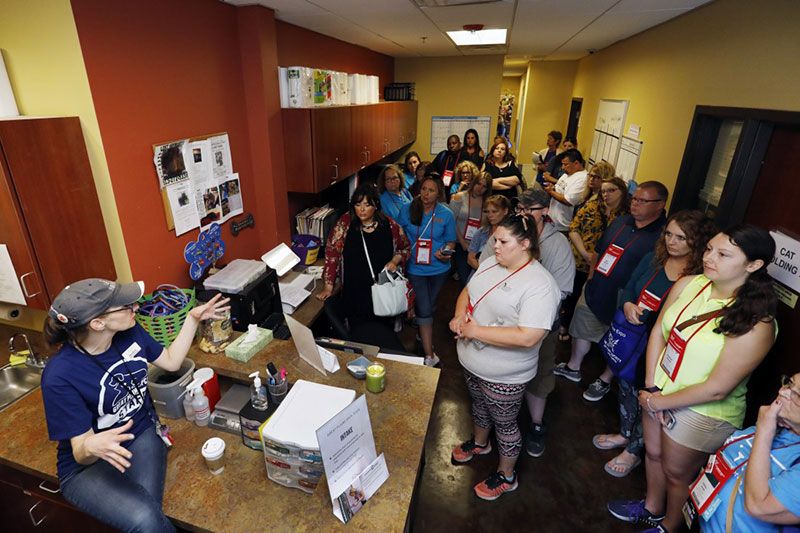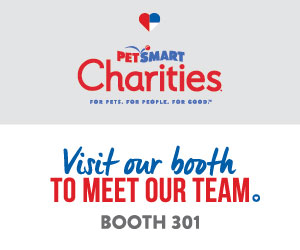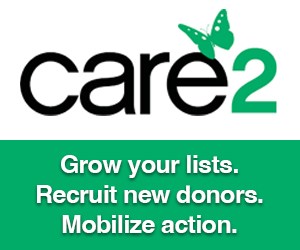Learning labs - Animal Care Expo 2019
Add learning labs to your Animal Care Expo schedule!

Learning labs are $50 and are not included in full conference registration. Lunch is included. See the registration rates.
To assist you in selecting workshops that will be most helpful, presenters have coded their workshops using one of the following categories:
- Level 1: Suitable for all skill and experience levels
- Level 2: Best suited to those new to the field
- Level 3: Best suited to those with a moderate level of experience in the field and/or those in mid-level leadership positions
- Level 4: Best suited to those with extensive experience in the field and/or those in high-level leadership positions
Continuing Education Credits
All learning labs have been pre-approved for Certified Animal Welfare Administrator continuing education credits. Each learning lab is approved for the same amount of CE credits as the length.
There are 2 learning labs (and 14 sessions) that are approved for RACE CE credits for veterinarians and veterinary technicians. Information is provided following each applicable learning lab regarding the amount of RACE CE available. Veterinary professionals can earn up to 16.5 hours total of RACE CE credits for attending Animal Care Expo 2019.
There are 2 learning labs (and 32 sessions) that are approved for NACA CE credits for animal care and control officers. Each learning lab is approved for the same amount of CE credits as the length.
All learning labs have been pre-approved for International Association of Animal Behavior Consultants continuing education credits.
Monday, April 15, 2019
8:00am - 3:00pm (unless otherwise noted)
Coping with kittens: #AllTheCats kitten summit
From bottle babies to bottlenecks, #AllTheCats is starting from the beginning of catdom in this learning lab designed to guide shelters through the most hair-pulling time of year: kitten season. We will break the season down into three distinct phases and guide you through the science behind managing the influx and optimizing live outcomes during each phase. Hear firsthand from those that have summited Mt. Kitten when we highlight the nation’s most innovative programs. Level 3
Presenters: Jennifer Brehler, Senior Vice President and Chief Operating Officer, San Diego Humane Society; Kristi Brooks, Director of Operations, Cat Adoption Team; Cindi Delany, DVM, Supervising Shelter Veterinarian, UC Davis Koret Shelter Medicine Program; Kate Hurley, DVM, MPVM, PhD, Director, UC Davis Koret Shelter Medicine Program and Co-Founder, Million Cat Challenge; Cristie Kamiya, DVM, MBA, Chief of Shelter Medicine, Humane Society Silicon Valley; Cynthia Karsten, DVM, DABVP, Shelter Medicine Practice, Outreach Veterinarian, Koret Shelter Medicine Program, UC Davis; Julie Levy, DVM, PhD, DACVIM, DABVP, Director, Maddie's Shelter Medicine Program, University of Florida and Co-Founder, Million Cat Challenge; Kate Mayeski, Pet Resource Center Manager, Arizona Humane Society; Robby Nisenfeld, Communications Manager, Arizona Humane Society
This program has been approved for 6 hours of continuing education credit for both veterinarians and veterinary technicians in jurisdictions which recognize RACE approval.
Expanding the shelter leader's capacity for care: A workflow management boot camp
We all know that shelters operate better when they are within their capacity for care, allowing healthy, happy animals to move through shelters safely and quickly, saving resources, staff sanity, and most importantly, more animal lives. But what about people? We too have limits and working within our capacity for care maximizes our effectiveness and ensures a humane environment for ourselves, our staff, the animals we care for and the organizations we serve. This unique workshop for shelter leaders will provide an intensive daylong session where each participant will be supported in identifying true priorities and building healthy habits and processes, while maintaining a healthy, happy balance between the work you love and the life you deserve.
Level 4
Presenters: Lisa Bassi, Operations Manager, UC Davis Koret Shelter Medicine Program; Cindi Delany, DVM, Supervising Shelter Veterinarian, UC Davis Koret Shelter Medicine Program; Kate Hurley, DVM, MPVM, PhD, Director, UC Davis Koret Shelter Medicine Program and Co-Founder, Million Cat Challenge; Laura Maloney, Principal, Adisa; Betsy McFarland, CAWA, Principal, Adisa; Jyothi Robertson, Principal Consultant, JVR Shelter Strategies
Barkitecture: Creating the best shelter paws-ible
Building a new shelter, or making major renovations to an existing one, can be a daunting undertaking or an exciting opportunity. In this daylong workshop, our panel of experts will provide you with the guidance and tools necessary to make the most of this opportunity through the process of planning, designing and building a new or new-and-improved shelter for your community and the animals in your care.
Level 4
Presenters: Rick Bacon, FAIA, LEED AP, President/Principal Architect, Bacon Group Architecture; Michael Barnard, AIA, ACO, NCARB, President/Animal Shelter Architect, Shelter Planners of America; Scott Learned, MS, PE, LEED AP, President, Design Learned; Heather Lewis, AIA, NCARB, Principal, Animal Arts; Shelly Moore, CAWA, President, CEO, Humane Society of Charlotte; Martha Seng, FAIA, Principal, Jackson & Ryan Architects
Engaging communities in humane population management and rabies control: Building sustainable strategies through technology and experience
Animal protection organizations are often faced with many challenges, most resulting from human-animal conflicts, and are asked to devise interventions that will prevent inhumane culling or bring about the end to catch/destroy programs. How should we decide on the best possible intervention based on the capacity and funding available? How do we make a convincing pitch to local authorities, one that is backed by sound scientific research? How do we actively involve the communities where dogs reside? What are the technology-based applications available to plan and run an efficient survey, rabies control program or spay/neuter program? How do we ensure that our efforts are sustainable, long-lasting and can easily be transitioned to local authorities and communities?
Presenters: Amit Chaudhari, DVM, Senior Program Manager, HSI Companion Animals, India; Tamara Kartal, Manager, Research & Development, HSI Companion Animals, United Kingdom; Alexandra Rothlisberger, Director, HSI Companion Animals, United States; Ryan Wallace, DVM-MPH, U.S. Centers for Disease Control and Prevention; Rahul Sehgal, Senior Director, HSI Companion Animals, India; Shrikant Verma, DVM, Program Manager, HSI Companion Animals, India
This program has been approved for 5.5 hours of continuing education credit for NACA members.
Fostering is the future
Note: This session will run until 3:30pm
Human foster care has transformed the way we care for homeless children, and today the idea that pets benefit in similar ways is taking animal welfare by storm. Foster care can provide solutions for almost any shelter pet, including those who are fearful, undersocialized, overly energetic, and those who just need a break from the shelter to get noticed by adopters. Foster care is helping communities save record numbers of lives while increasing public engagement and creating safer, more humane organizations. Participants in this daylong session will learn how to create and implement high-volume foster programs to serve most every pet. From field trips to overnights, emergency fostering to “fospice,” this session will teach you how to transform your foster program and help you troubleshoot common challenges. You’ll work directly with industry leaders who have done it and learn why fostering is the future for shelter pets. Level 1
Presenters: Sarah Aguilar, Deputy Director, Pima Animal Care Center; Kristen Auerbach, Director of Animal Services, Pima County Animal Center; Kristi Brooks, Director of Operations, Cat Adoption Team; Sheila D'Arpino, Director of Research, Maddie's Fund; Kelly Duer, Foster Program Consultant
All in the family: Uniting staff and volunteers
Does your staff say that they don't have time to manage volunteers or that volunteers make their jobs harder? Are they concerned that volunteers won't follow the rules or might be undependable? If your staff is resistant to working with volunteers, take heart, it doesn't have to be that way! We’ll dive deeply into all the ways you can design a volunteer program that supports volunteer’ AND employee needs, values and interests, and gets them working better together. This session is sure to provide “Aha” moments, deep engagement with fellow volunteer coordinators, guidance on what to do when you feel stuck and access to a collection of digital resources. Level 1
Presenters: Jaime Allen, Senior Director, Education and Volunteer Programs, Humane Society Silicon Valley; Chris Boortz, MEd, Training Specialist, National Outreach Volunteer Programs, Best Friends Animal Society; Lauren Wickman, Senior Manager, Adoption Programs, Humane Society Silicon Valley
Survival is not enough: Building compassion resilience for yourself and your team
The animal protection field is an emotionally-charged, complex work environment. We all need ways to better care for ourselves and our teams during exposure to trauma and challenges. This workshop will provide participants with an understanding of the causes and symptoms of compassion fatigue, as well as a suite of practical skills that can be used to build and maintain the resilience necessary to thrive in our work. The first half of the day will focus on the self and individual strategies for care-taking, while the second will focus on steps leaders and team members can take to establish and reinforce an internal culture of well-being that will support your organization's mission. Level 1
Presenters: Jessica Dolce, MS, Certified Compassion Fatigue Educator and Consultant; Hilary Hager, MNPL, Senior Director of Volunteer Engagement, Outreach and Engagement, the Humane Society of the United States
This program has been approved for 5.5 hours of continuing education credit for NACA members.
Spayathon for Puerto Rico: An unprecedented collaboration to save lives
It began as a crazy dream—What would it take to spay/neuter nearly 25,000 animals in one year on a poverty-stricken island? —and came to fruition as the Spayathon for Puerto Rico. Learn how a handful of determined individuals entered into an unprecedented agreement with government officials, convinced 26 separate organizations to work together, and put in place the largest spay/neuter effort in the world to support the people and pets of Puerto Rico—and how you can do the same! Level 1
Presenters: Inga Fricke, Director, Sheltering Initiatives and Engagement, Companion Animals, the Humane Society of the United States; Julie Levy, DVM, PhD, DACVIM, DABVP, Director, Maddie's Shelter Medicine Program, University of Florida and Co-Founder, Million Cat Challenge; Tara Loller, Senior Director, Strategic Campaigns and Special Projects, Companion Animals, the Humane Society of the United States; Amy Mills, CEO, Emancipet; Katherine Polak, DVM, MPH, MS, DACVPM, DABVP (Shelter Medicine Practice), Head of Stray Animal Care - Southeast Asia FOUR PAWS International and Editor, “Field Manual for Small Animal Medicine”; Stella Ramirez, Vice President, Santuario de Animales San Francisco De Asís
Veterinarians and the animal welfare movement: Building powerful partnerships
This veterinary symposium brings together veterinary leaders from the private, nonprofit and public sectors to present on critical topics impacting the profession and the animal welfare movement. Presenters will discuss access to veterinary care challenges and highlight best practices for developing collaborative relationships and leveraging the veterinary role in improving animal welfare. Specific topics to be presented include:
- Access to veterinary care: A national animal welfare crisis;
- Public-nonprofit partnership: A case study of community collaboration between the San Francisco SPCA and San Francisco Animal Care and Control;
- Making the private-nonprofit veterinary relationship work: Case studies from two shelters;
- The veterinary profession and the animal welfare movement: Lessons learned; opportunities ahead; and
- The veterinary professional’s role in animal advocacy: How to maximize your impact in improving animal welfare in the clinic, the community and beyond. Level 1
Presenters: Michael Blackwell, DVM, MPH, Director, Program for Pet Health Equity, University of Tennessee, Knoxville, College of Social Work; Gary Block, DVM, MS, DACVIM, Co-Owner, Ocean State Veterinary Specialists, Rhode Island, HSVMA Board of Directors member; Barbara Hodges, DVM, MBA, HSVMA Veterinary Adviser; Susan Krebsbach, DVM, Assistant Director, Program for Pet Health Equity, University of Tennessee, Knoxville, College of Social Work; Kate Maher, DVM, Old South Veterinary Services, Louisiana, HSVMA Louisiana State Representative; Shari O’Neill, DVM, MPH, DACVPM, UW/UCD Maddie's Shelter Medicine Fellow, Chief Shelter Veterinarian, San Francisco Animal Care and Control; Elizabeth Roberts, DVM, MPH, UW/UCD Maddie's Shelter Medicine Fellow, Director of Shelter Medicine, San Francisco SPCA; Jeff Rosenthal, DVM, Chief Executive Officer, Idaho Humane Society; Bernard Unti, PhD, Senior Policy Advisor, The Humane Society of the United States; Dr. Gary Weitzman, DVM, MPH, CAWA, President and CEO, San Diego Humane Society
This program has been approved for 5.5 hours of continuing education credit for both veterinarians and veterinary technicians for both veterinarians and veterinary technicians in jurisdictions which recognize RACE approval.



